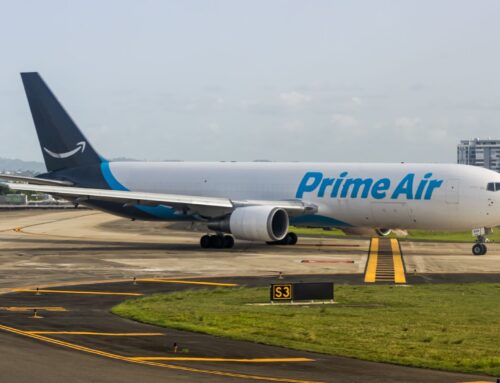Environmental progress ‘coming to a standstill’ amid government cuts, says former head of
May 19, 2025
The U.S. Environmental Protection Agency is facing steep reductions to staff and funding while President Donald Trump’s administration redirects the agency’s focus to workforce efficiency and deregulating energy industries.
EPA Administrator Lee Zeldin announced earlier this month a significant restructuring of the agency, including cutting staff to Reagan-era levels to save about $300 million in the next fiscal year.
“With these organizational improvements, we recommit to fulfilling all of our statutory obligations and exceptionally delivering on EPA’s core mission of protecting human health and the environment,” Zeldin said in a news release. “This reorganization will bring much needed efficiencies to incorporate science into our rulemakings and sharply focus our work on providing the cleanest air, land, and water for our communities.”
Cuts have reached Region 3, which oversees a host of environmental work in Virginia, according to Adam Ortiz, who served as EPA’s administrator of the Mid-Atlantic office under the Biden administration.
Ortiz, who now works for Maryland’s Department of the Environment, recently spoke with WHRO and said he’s concerned about potential impacts of ongoing cuts to public health and the massive effort to restore the Chesapeake Bay.
This interview has been edited for length and clarity.
WHRO: Tell me about your former role with the EPA and what you did there.
Adam Ortiz: I’m the former regional administrator for the Mid-Atlantic region at EPA, including Virginia, and oversaw the execution of federal laws and grants and cleanup projects.
Environmental challenges are all around us, and what we face in this country is not just dealing with stuff in the present moment, but we’re also cleaning up 100 years worth of pollution, especially in industrial and naval areas like Hampton Roads and the Norfolk area, and also trying to prepare for the future by having clean energy and reduce the impacts of climate change. So that’s a big agenda. In recent years, we did a lot of catching up in those areas. (There’s) still a staggering amount of work to do. But the recent actions by the Trump administration have hobbled or hindered or prevented that progress from moving forward. And places that are low lying, older cities that have more environmental liabilities, are the most at risk.
WHRO: What do you see or hear currently happening at the Mid-Atlantic office that concerns you?
AO: We really accelerated our cleanups of Superfund and Brownfield sites. In coastal Virginia, there’s hundreds and hundreds of them, and we made a lot of progress but there’s still a lot to do, because they’re very expensive and very complicated. Many of those projects have been placed on hold and also a lot of the staff have been prevented from engaging with the public in the way that we used to.
Basic questions about public health are being hampered. Recent actions have laid off the staff that were working on those projects. And then further cuts are being made into the funding of those projects themselves.
Often that funding is passed on from the EPA to local communities like Portsmouth (and) Norfolk, to do the cleanups themselves. That is coming to a standstill as well.
WHRO: Are there some specific projects in Hampton Roads that you’re worried about?
AO: Because of the military history and the naval history, there’s a lot of chemicals, a lot of unexploded ordnance, a lot of health hazards that are beneath the surface of the land that get into people’s bodies, either through the land, through air or through water. So we stepped up our cleanups of many Brownfield sites and Superfund sites, including Peck Iron and Metal (in Portsmouth). That’s a facility that’s been shut down for more than 20 years. What’s been found on that site in particular, which is characteristic of other sites in the region, are PCBs, battery acid, arsenic, lead and even radioactive material that the public needs to hear about and get educated. But the health experts have been gagged. Many of them have been fired or laid off.
And like all coastal places, sea level rise is a real thing. It’s a big deal. Flooding is becoming more and more common, and critical infrastructure is all along the shoreline of Virginia’s coast. Preventing the sources of climate change, as well as dealing with flooding when it happens, have also been under attack.
These are really big impacts that we’re beginning to feel. But as time goes on and there’s not experts, staff or the funding to fix problems, it’s going to become more and more of a problem for everyday people.
WHRO: You focused a lot on environmental justice, including a task force that was just getting off the ground in Norfolk. What’s happening with that now?
AO: Well, environmental justice was a priority because it needs to be. It’s central to the mission of EPA to protect public health and the environment. And some of these communities, especially around Portsmouth, Norfolk area, communities that are overwhelmed with pollution, where health outcomes are very poor, some of the worst in the country, we spent a lot of time and provided a lot of technical assistance to communities to help reduce risks. To help clean things up and get grant money into local governments and non-governmental organizations to do cleanups and solve those problems.
That was called the engagement communities initiative. The whole premise was that we have to engage and work closely because there’s an awful lot of pollution, a complex series of sources that have real impacts on the health of people and especially our youngest and our oldest. There was a team of experts that were going in. But unfortunately — on Earth Day — 20 people in the Mid-Atlantic office received their pink slips. They received a notice saying that their work was not consistent with the mission of the agency.And furthermore, the staff have been prevented from even using the term environmental justice. So places that are most at risk are going to suffer even more.
WHRO: One big issue for the Mid-Atlantic is the Chesapeake Bay restoration. What did you learn about that effort during your time at Region 3, and how could it be impacted by all this?
AO: For many years, there was uneven support of the Chesapeake Bay effort. It consists of many states all the way up to New York, as well as the federal government, working with farmers and with private industry, and it’d been uneven. Four years ago, there was a lawsuit against EPA that it wasn’t doing enough and in the Biden administration, we settled that lawsuit. We brought everybody together, regardless of political party, and stepped up our efforts. We stepped up our enforcement, we stepped up our funding, we stepped up the application of science.
After a few short years, we saw the results in 2023: the Chesapeake Bay received its highest health grade in more than 22 years, and that’s because we were working together. But that requires a strong federal government in that captain’s chair. And what we see in this administration is that they cut the program. They undermined it. They said it wasn’t important. They weren’t enforcing or holding the states accountable. A shared resource like the Chesapeake Bay, which spans so many states and has thousands of streams feeding into it, requires an all hands on deck approach. I think it’s going to be tough for us to maintain the recent successes that we’ve had with an ambivalent or a disinterested federal government.
The EPA’s Mid-Atlantic office could not provide comment to WHRO by deadline.
Search
RECENT PRESS RELEASES
Related Post




